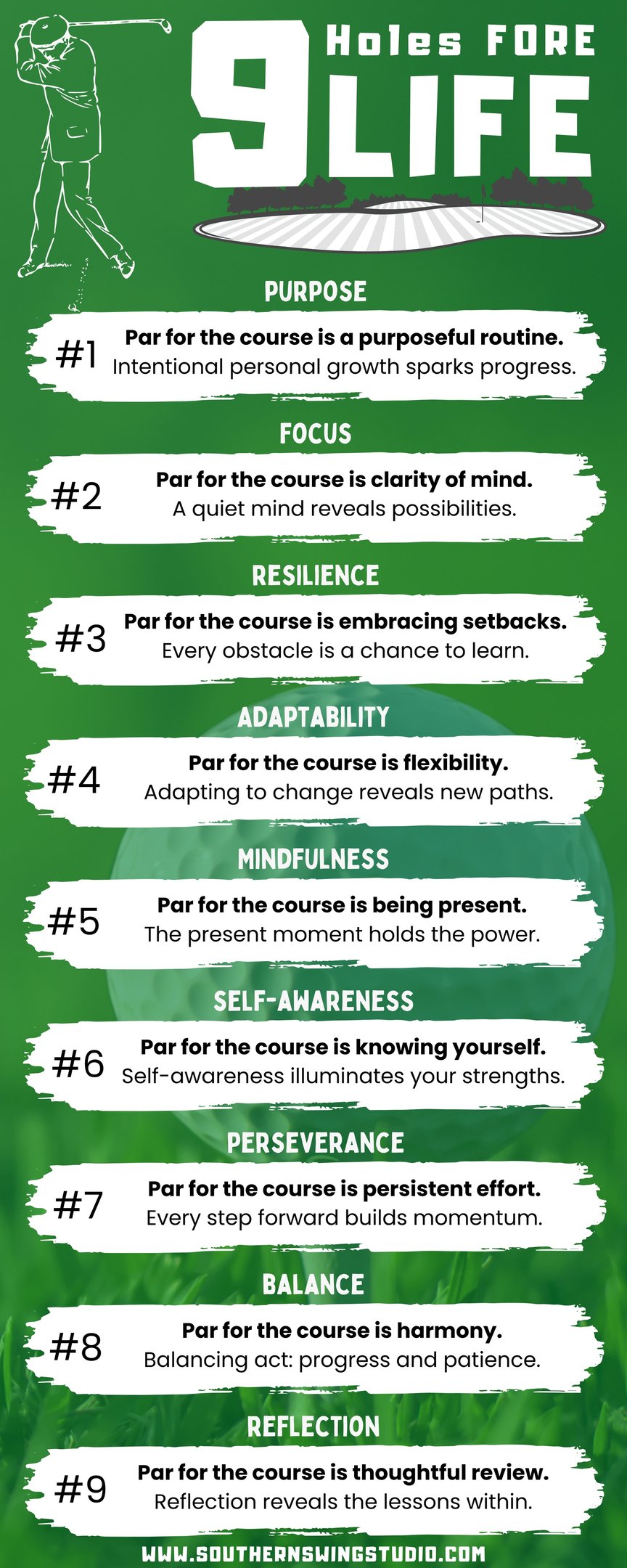The Inner Game of Peak Performance: Unifying Body, Mind, and Spirit
Discover the secrets to achieving greatness in golf and life. Explore the intersection of Eastern philosophy, sports psychology, and personal growth, and learn how to unify your body, mind, and spirit for peak performance. The full post explores the concept of Hara and its role in cultivating a centered and grounded state, how to quiet the mind and focus on the present moment, the importance of embracing a holistic approach to personal growth and peak performance, and practical tips for applying these principles to your golf game and everyday life. Join the journey to peak performance and personal growth!
MENTAL GAME
Steven Bradley
3/19/20252 min read


As we navigate the complexities of modern life, it can be easy to get caught up in the external trappings of success. We chase after trophies, titles, and accolades, often at the expense of our own well-being. But what if I told you the secrets to peak performance and personal growth lie not in external sources, but in the harmonization of our own body, mind, and spirit?
This is the central thesis of my exploration into the intersection of Eastern philosophy, sports psychology, and personal growth. It's a journey that takes us from the fairways of golf to the mindfulness practices of meditation, and reveals a profound truth: that the key to unlocking our full potential lies within.
Let's start with the concept of Hara, a Japanese idea rooted in Zen Buddhism and martial arts. Hara refers to the cultivation of a centered and grounded state, often described as a feeling of stability and balance in the lower abdomen. It's about quieting the mind, focusing on the breath, and tuning into the body's physical sensations. By doing so, we can access our intuition and make more informed decisions. As I noted earlier, "Intentional personal growth sparks progress."
The practice of Hara lays the foundation for a quiet mind, a concept championed by sports psychologist Bob Rotella. When we cultivate a quiet mind, we're able to focus and concentrate without distraction. This state of heightened awareness and concentration is essential for achieving success in any endeavor. As we quiet the mind, we become more aware of our thoughts, emotions, and physical sensations, allowing us to respond more skillfully to challenges.
Taking it a step further, we can embrace the concept of "no-mind," popularized by Bruce Lee. "No-mind" refers to a state of complete presence and awareness, unencumbered by ego, preconceptions, or distractions. It's a state of fluid adaptability, allowing us to respond creatively and effectively to any situation.
So, what does this look like in practice? For golfers, it means quieting the mind and focusing on the shot, rather than getting caught up in distractions or mental chatter. For entrepreneurs, it means cultivating a centered and grounded state, allowing for more informed decision-making and creative problem-solving. And for anyone looking to achieve peak performance and personal growth, it means embracing a holistic approach that unifies body, mind, and spirit.
This is not just a philosophical nicety; it's a practical necessity. When we're able to harmonize our body, mind, and spirit, we're able to access our full potential and achieve greatness in all aspects of our lives. It's a journey that requires discipline, dedication, and a willingness to let go of our ego and preconceptions.
As we conclude this exploration, I'm reminded of the wisdom of Bruce Lee: "Do not pray for an easy life, pray for the strength to endure a difficult one." The journey to peak performance and personal growth is not an easy one, but it's a journey that's worth taking. By embracing these principles, we can unlock our full potential and achieve greatness in all aspects of our lives.
Take the Next Step
If you're ready to embark on this journey, I invite you to explore the 9 Holes of Peak Performance, a comprehensive framework for achieving success and personal growth. Start by saving the graphic, which includes practical tips and strategies for cultivating a centered and grounded state, quieting the mind, and embracing the concept of "no-mind."
